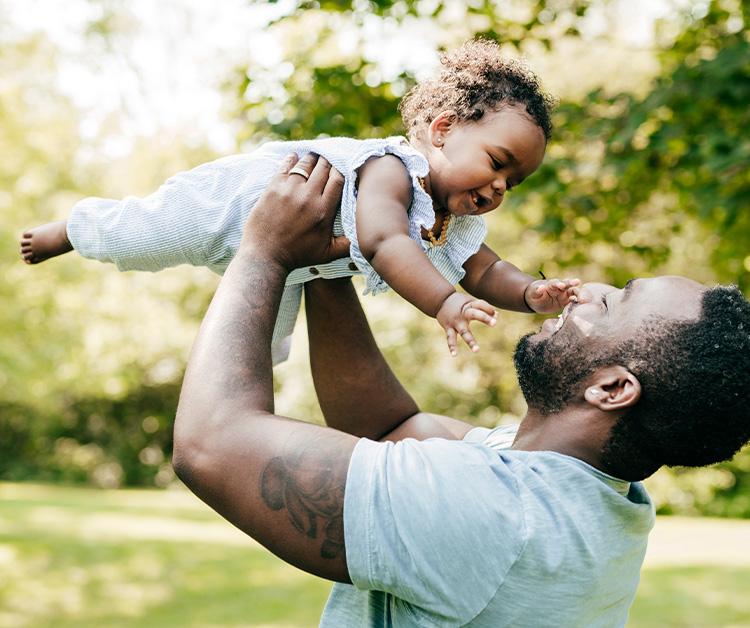No Enfamil products are affected by the recent recall initiated by another manufacturer. Learn more about our quality standards.

From improved focus at 3 months to a sense of fairness at 15 months, there’s more going on in your child’s brain than you may know! Here are some of their month-by-month milestones.
Ah, your baby’s first words. They’re a big deal. Same with the first time they take a step. Huge. But your little one’s working on many other lesser-known baby milestones as well. The month-by-month milestones reveal just how much is happening in that developing brain of theirs.
What your baby sees may seem like a mystery to you. But researchers have found ways to track a baby’s vision and attention to provide some definite clues. By 3 months old, babies can select certain things to focus on. For example, they can pick out a letter R from a group of P’s or distinguish a red umbrella in a sea of gray ones.
Can a friend’s cranky baby put yours in a bad mood? Possibly. Babies use emotion to communicate. And by 5 months, they’re pretty good at reading the emotions of others. Researchers have found that babies can match emotions through the right facial expressions or vocalizations in other babies at 5 months, in parents or caregivers at 6 months, and in other adults by 7 months.
The ability to learn from a picture happens surprisingly early. Not many of us have ever seen a dinosaur or spaceship, but we all understand what they are. Researchers published in the journal Child Development found that even brief exposure to a picture helped the child recognize the image when they saw it again later.
Choose books with photographs instead of drawings to help make the connection to real-world objects easier
Researchers used to think that a sense of helping others didn’t show up until age 2, and that a sense of fairness didn’t develop until 6 or 7. Both are parts of selfless behavior. But experiments at the University of Washington revealed that young toddlers noted when food was distributed fairly; and when it wasn’t, they became more willing to share their own.
Month by month, your baby’s milestones keep growing. Almost as quickly as they do! Get ready for more amazing milestones in the months to come.
"Take time for yourself even if it means having a babysitter, grandparent or hubby feed a bottle. It will make you a better mommy and your family will love you more when you are happy with yourself and love yourself."
– Enfamil® mom
All information on Enfamil, including but not limited to information about health, medical conditions, and nutrition, is intended for your general knowledge and is not a substitute for a healthcare professional's medical identification, advice, or management for specific medical conditions. You should seek medical care and consult your doctor or pediatrician for any specific health or nutrition issues. Never disregard professional medical advice or delay seeking medical treatment, care, or help because of information you have read on Enfamil.